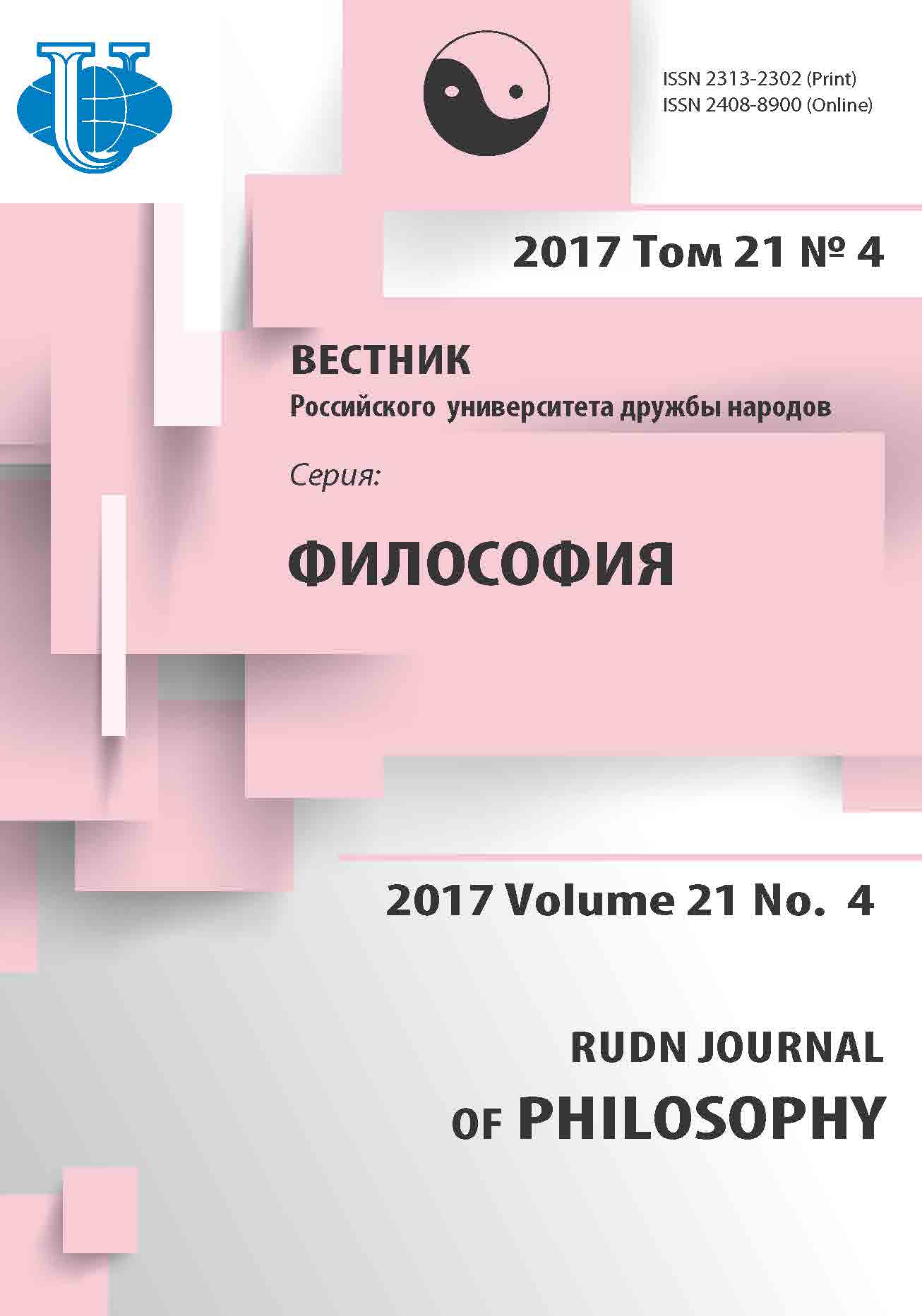EROS IN THE ECONOMY OF POWER: THEORIES OF DISCOURSIVE AND DISCIPLINARY CONTROL (M. Foucault and J. Butler)
- Authors: Tagirov P.V1
-
Affiliations:
- RUDN University (Peoples’ Friendship University of Russia)
- Issue: Vol 21, No 4 (2017)
- Pages: 495-504
- Section: Articles
- URL: https://journals.rudn.ru/philosophy/article/view/17660
- DOI: https://doi.org/10.22363/2313-2302-2017-21-4-495-504
- ID: 17660
Cite item
Full Text
Abstract
Despite the preservation of traditional political institutions, the mechanisms for including eros in the logic of power are undergoing serious changes in contemporary society in comparison with their classical forms. Specificity of these changes is caused by a number of reasons of historical, political and socio-cultural nature. First of all, THEY include various processes rooted in bourgeois revolutions, the secularization and democratization of society, the crisis of the basic metanarratives in the 20th century and, finally, the phenomenon of sexual revolution. One of the most heuristic theoretical attempts to comprehend the relationship between power and eroticism in nowadays society is, in the author's opinion, the model of discoursive and disciplinary control proposed by M. Foucault, and subsequently developed by a number of thinkers, including J. Butler. This research primarily relies on methodology of social criticism, philosophical comparativism and history of philosophy. Our analysis of the theories of diffusive and discoursive control, first of all, focuses on the following questions: how does the power participate in the formation of the subject of desire or, in other words, produce it, what is a disciplinary society, where the origin of disciplinary and normalizing control should be sought, what are the most ambiguous points of the studied approach to the subject, power and sexuality, and, finally, what alternative to the existing social order is offered by these theories.
About the authors
Ph V Tagirov
RUDN University (Peoples’ Friendship University of Russia)
Author for correspondence.
Email: ph.tagirov@mail.ru
Тагиров Филипп Владимирович - кандидат философских наук, доцент кафедры социальной философии Российского университета дружбы народов
6, Miklukho-Maklaya Str., 117198, Moscow, Russian FederationReferences
- Tagirov FV. Eros v ekonomike vlasti: repressivnaya gipoteza. Tsennosti i smysly. 2017;4(50):44—57. (In Russ.)
- Fuko M. Volya k istine — po tu storonu znaniya, vlasti i seksual'nosti. Moscow; 1996. (In Russ.)
- Batler Dzh. Psikhika vlasti: teorii sub"ektsii. Saint Petersburg: Aleteiya; 2002. (In Russ.)
- Bronzino LY, Kurmeleva EM. Identity in Contemporary Society: A Gender Perspective. In: European Society or European Societies: A View from Russia. 9th Conference of the European Sociological Association. Moscow: Maska; 2009. p. 335—338.
- Butler JP. Gender Trouble: Feminism and the Subversion of Identity. New York; 1990.
- Butler JP. Undoing Gender. New York; 2004.
- Tagirov FV. Pol i identichnost': ot binarnoi logiki k gumanizmu plyural'nosti? RUDN Journal of Philosophy. 2016;(2):30—42. (In Russ.)
- Fuko M. Nenormal'nye: Kurs lektsii, prochitannykh v Kollezh de Frans v 1974—1975 uchebnom godu. Saint Petersburg: Nauka; 2004. (In Russ.)
- Tagirov FV. Eros: mezhdu normoi i perversiei. Filosofiya prava. 2011;4(47): 74—79. (In Russ.)
- Markuze G. Odnomernyi chelovek. Moscow: REFL-book; 1994. (In Russ.)
- Markuze G. Eros i tsivilizatsiya. Kiev: Gos. b-ka Ukrainy dlya yunoshestva; 1995. (In Russ.)
- Rudanovskaya SV. «Zhenshchina na krayu vremeni»: opyt sub"ekta v feministicheskoi utopii. RUDN Journal of Philosophy. 2017;(1):86—92. (In Russ.)
- Delez Zh. Razlichie i povtorenie. Saint Petersburg: TOO TK «Petropolis»; 1998. (In Russ.)
Supplementary files















